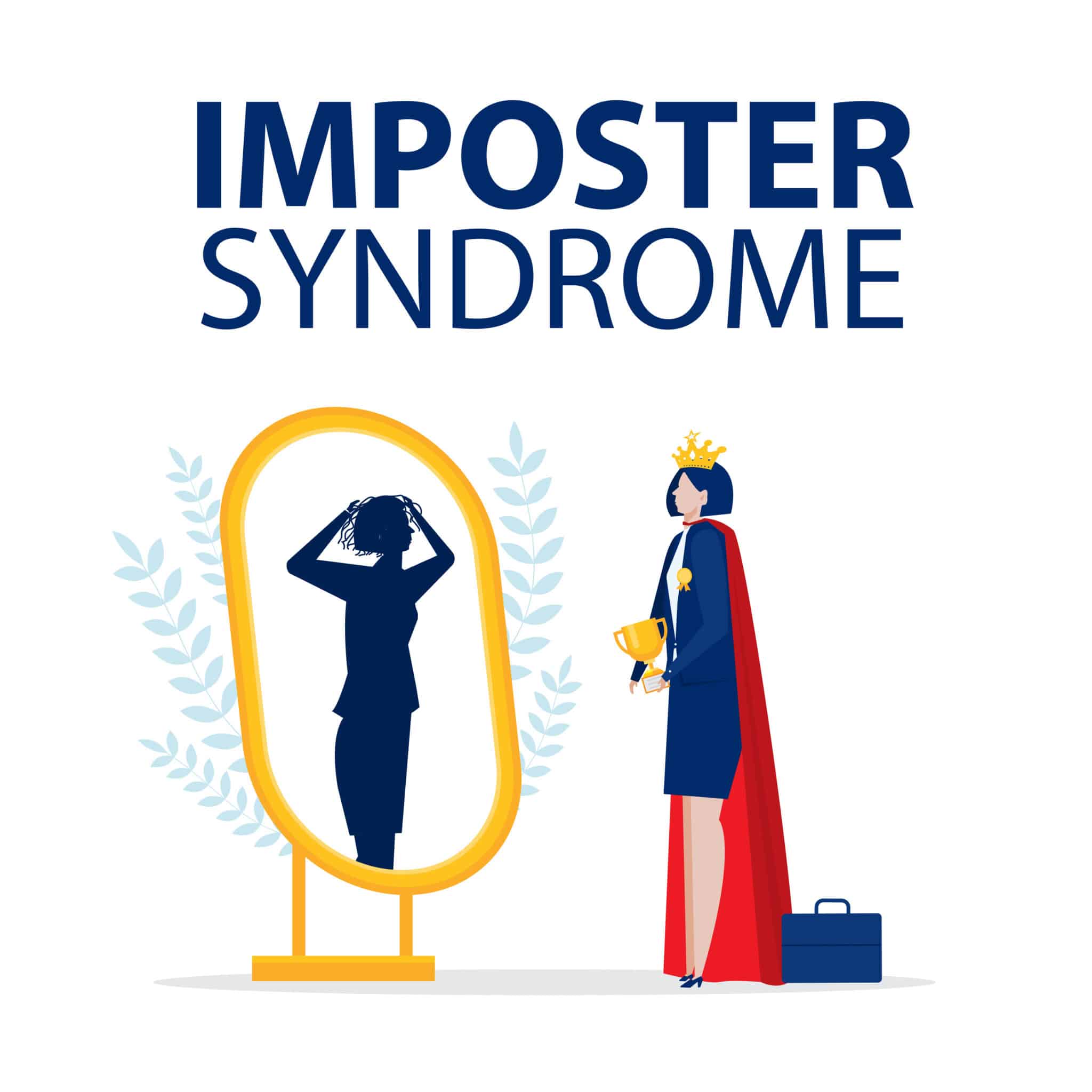Rutgers-Camden Blog
The Benefits of Imposter Syndrome

Summary
There are benefits to feeling like an imposter.
Imposter syndrome. I typed this into a Google search and returned 10,900,000 results in less than 0.49 seconds. Chances are, you’ve heard the term before and maybe you would even venture to say you’ve experienced imposter syndrome. You’re not alone; there are suggestions that as much as 82% of the population has experienced imposter feelings (Bravata et al, 2020).
The term, initially coined imposter phenomenon by psychologists Pauline Rose Clance and Suzanne Imes in 1978, has exploded over the last 45 years (see aforementioned Google search results). How the term evolved from “phenomenon” to “syndrome” in popular literature isn’t quite clear, and there are any number of articles with strong opinions about the language around this “experience.” What is clear is that imposter [syndrome, phenomenon, experience, feelings, thoughts, etc] is characterized by persistent self-doubt and the failure to internalize our successes. Though Clance and Imes initially conducted their observations among high achieving white women, the experience has been applied to nearly every segment of the population – though there is evidence that some populations, such as women and minorities, are still more likely to experience imposter feelings.
The term “imposter” conjures notions of outward deception and fraudulence, but anyone who has experienced imposter feelings would probably argue that the intention is not to mislead others; rather, the feelings are reflective of our internal misgivings about our place in the world, our deservedness to be in that role, in that space, etc. This “syndrome” has taken the relatively natural inclination toward nervousness and pathologized those feelings. And while, for some, the symptoms associated with imposter syndrome, such as anxiety or negative self-talk, can be chronic and require professional intervention, for the majority, it’s more likely these feelings and thoughts are part of new experiences, new challenges, new growth opportunities. So, knowing that many of us have experienced imposter feelings and that these feelings are likely to be temporary in new situations, how can we harness this information to work through this experience faster the next time we’re feeling like imposters?
Well-regarded researchers like Tyler Cowen, an economist and professor at George Mason University, and Adam Grant, a psychologist and professor at Wharton School of Business at University of Pennsylvania, have each written and discussed the possible benefits of imposter syndrome. In an article he wrote for Bloomberg.com, Cowen points to some positive take-a-ways of imposter feelings. He writes that imposter thoughts may be evidence of high standards for yourself, such that, if you worry you don’t belong, it’s probably a sign that you’ve set the bar high and you’re trying to measure up to a new level of achievement. Moreover, he suggests “imposters” may be more empathetic given that they have experienced a common human occurrence and, therefore, are more likely to be able to relate to others. You’ll probably be a better classmate, friend and future colleague as a result. Similarly, Adam Grant has documented positive outcomes associated with imposter syndrome and ways to harness these thoughts to work for you. On his popular podcasts WorkLife and ReThinking, and in his recent book Think Again, Grant offers new ways to think about feeling like an imposter. He says “imposters” tend to be more motivated as they work to prove themselves, more open to trying new strategies and seeking suggestions from those around them (making them great collaborators), and more likely to continually seek new ways to learn and grow. In an interview between Grant and actress and media executive Reese Witherspoon, she said, “I’d rather be a learn it all than a know it all.” This quote speaks to confident humility, a concept Grant defines as the idea that while you don’t know everything, you believe in your ability to keep learning. And while all of these positive approaches are helpful, sometimes imposter thoughts will still creep in. When they do, Grant offers these tips: don’t keep it to yourself, talk to yourself like a friend would, and, as often as possible, try to take pride in your achievements.
You don’t know it all, nor should you! You are here at Rutgers- Camden as part of your learning journey, which will continue long after you earn your degree. The next time you are experiencing imposter feelings, you can revisit this post to remind yourself of these potential benefits and tips. Most importantly, identify and share your feelings with your champions who believe in you and will support you. If you’re wondering where to start, the Division of Student Success is FULL of people ready to cheer you on!


